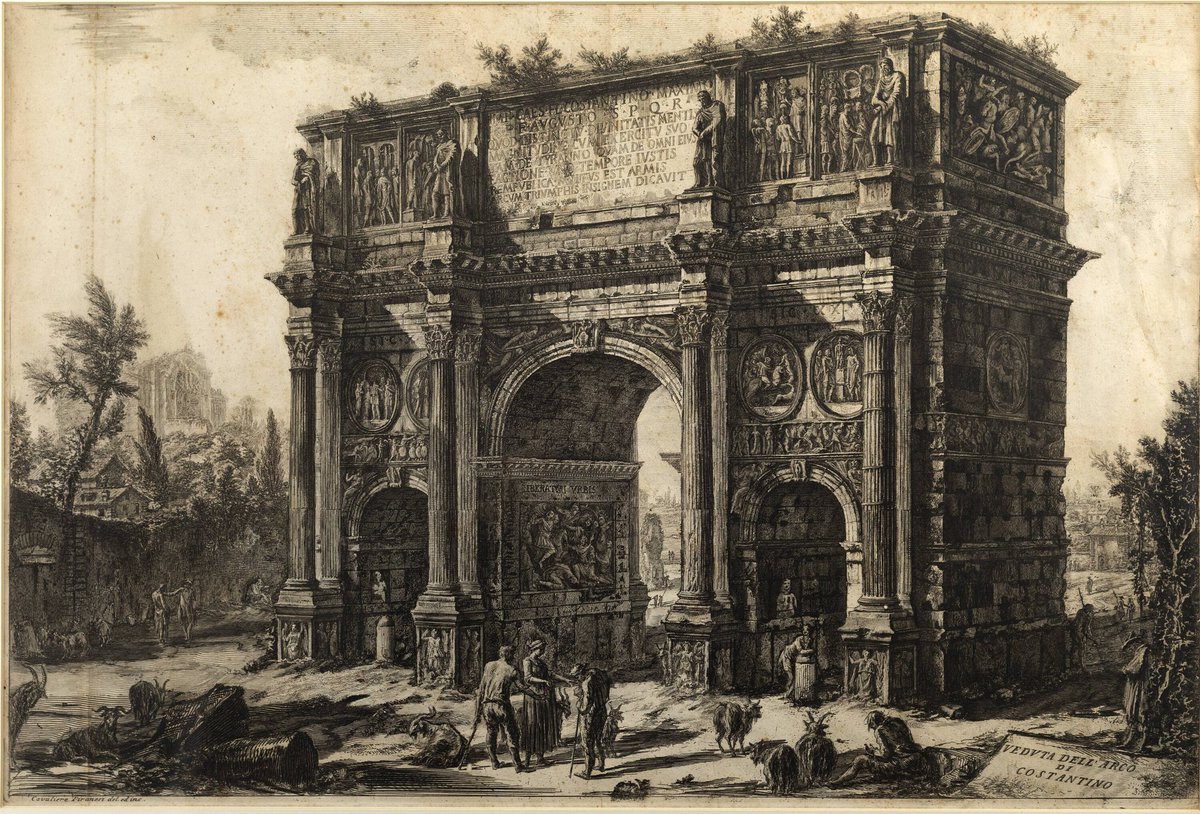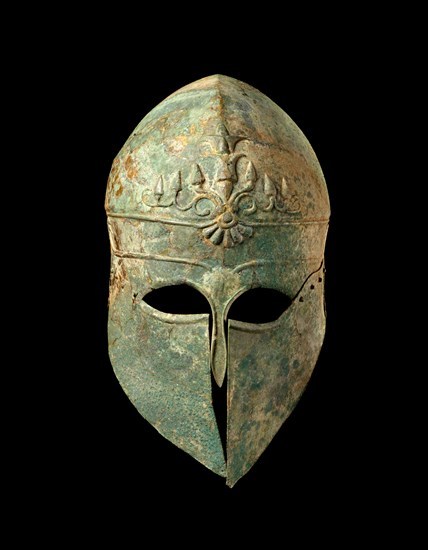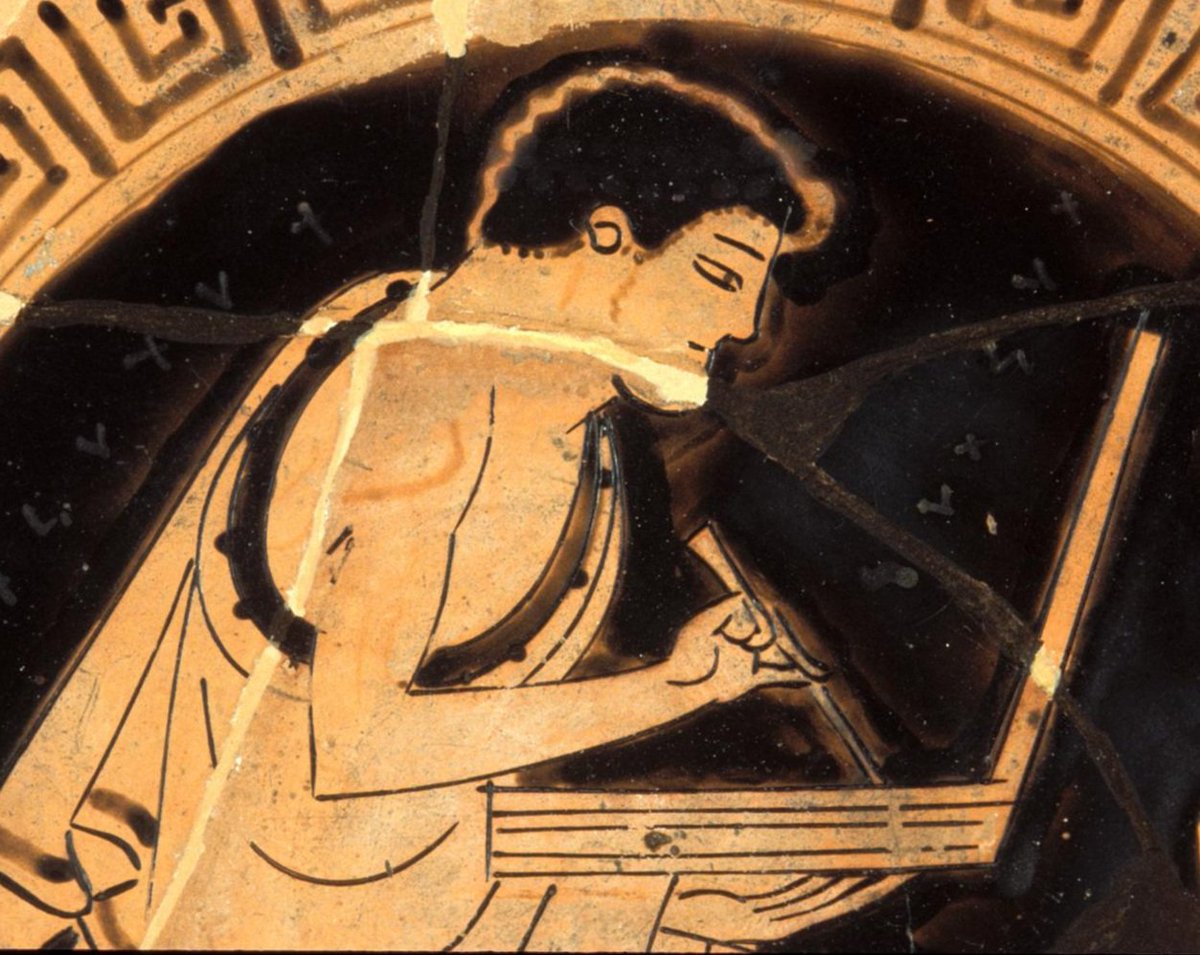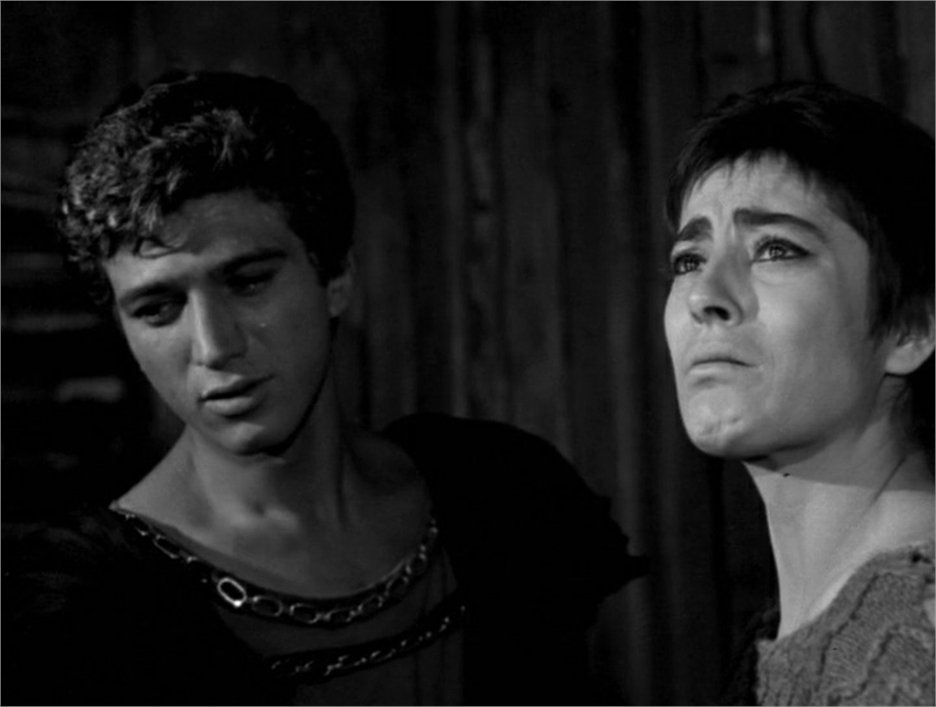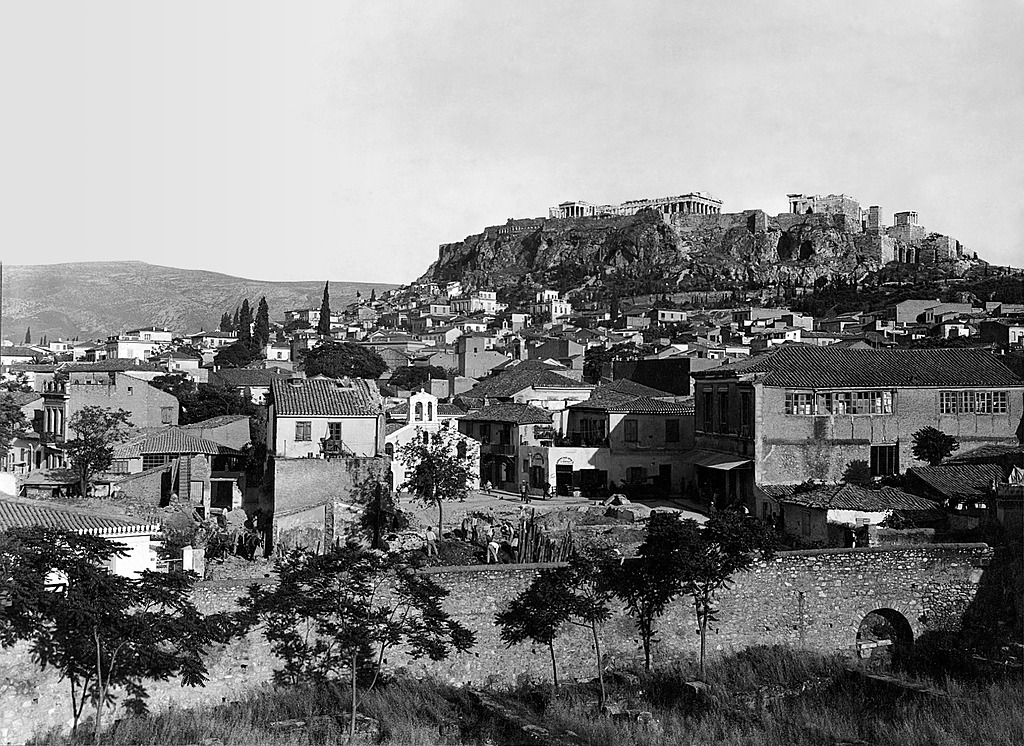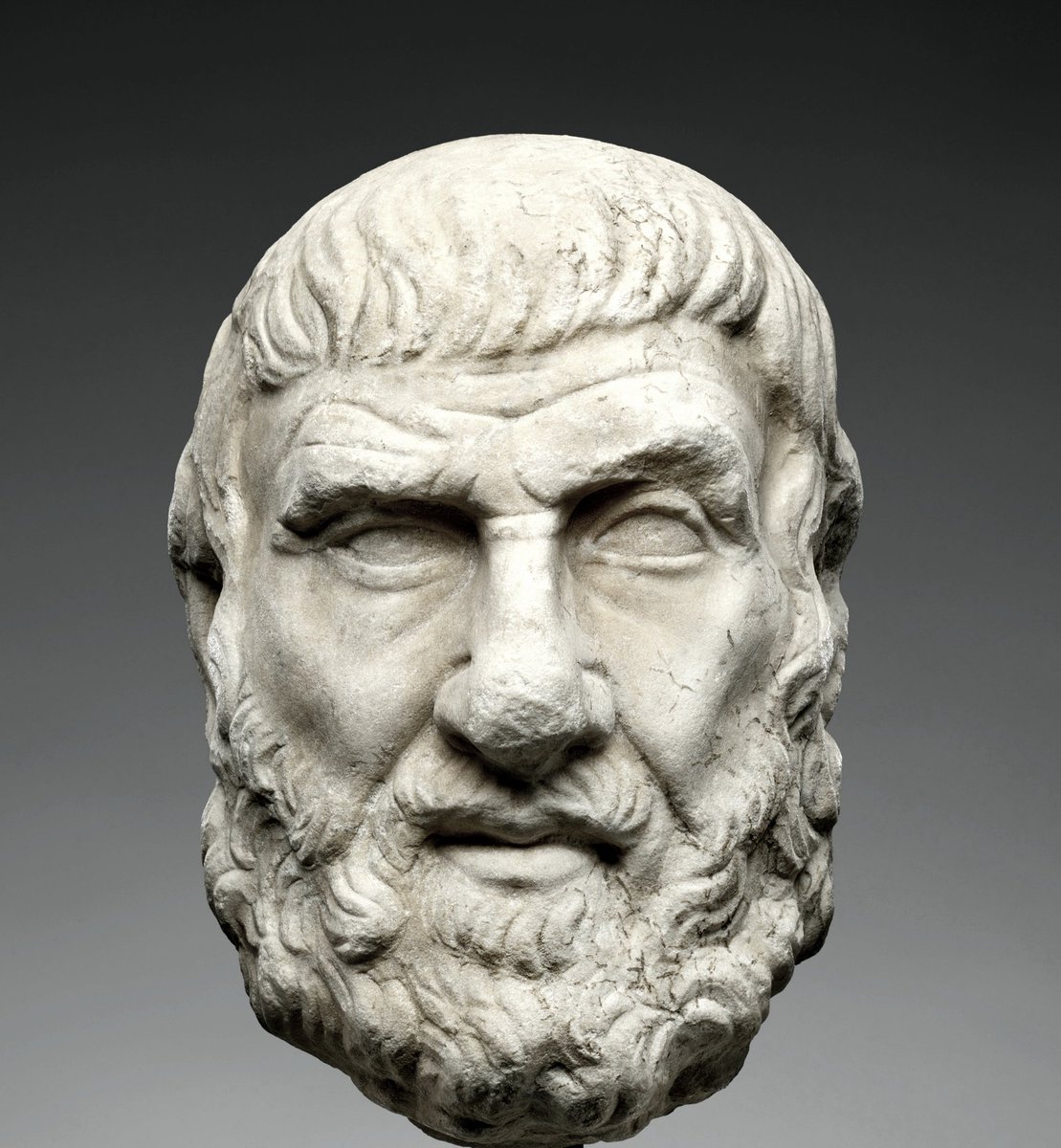
When the victorious Roman Scipio Africanus (The Younger) ordered Carthage's destruction (146 BC) he shed tears, presciently remarking to his Greek tutor & historian Polybius:
"I have a dread foreboding that some day the same doom will be pronounced on my own country."
"I have a dread foreboding that some day the same doom will be pronounced on my own country."
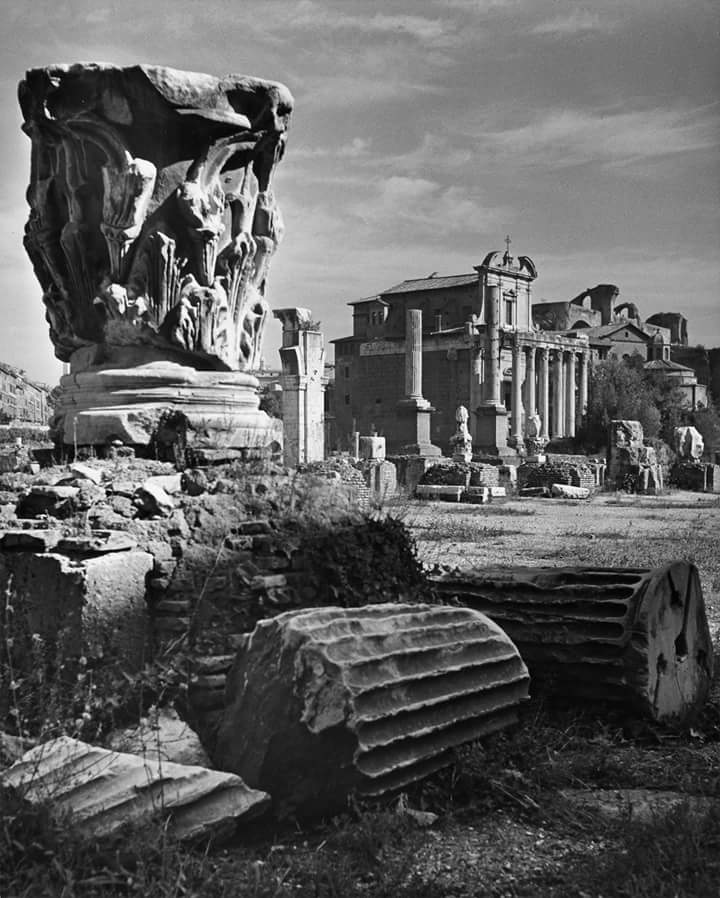
The above quote was recorded in Polybius' Histories (The Fall of Carthage) & Plutarch's Apophthegmata.
Above photo shows the Ruins of the Roman Forum, 1951 photograph by Herbert List [1]
Above photo shows the Ruins of the Roman Forum, 1951 photograph by Herbert List [1]
Then Scipio The Younger recited Homer’s Iliad about a prophecy of Troy's destruction:
"A day will come when sacred Troy shall perish, and Priam and his people shall be slain"
Like all things human,today is Carthage’s end, Scipio declared one day might be Rome’s
-Appian, Punica
"A day will come when sacred Troy shall perish, and Priam and his people shall be slain"
Like all things human,today is Carthage’s end, Scipio declared one day might be Rome’s
-Appian, Punica
Scipio learned this lesson from his Greek tutor Polybius, as the historian wrote in his Histories:
"History is in the truest sense an education...or rather the only, method of learning to bear with dignity the vicissitudes of fortune is to recall the catastrophes of others."
"History is in the truest sense an education...or rather the only, method of learning to bear with dignity the vicissitudes of fortune is to recall the catastrophes of others."
The Greek historian Herodotus (Histories, Bk. I) was the first to express "the cycle (of History) in human affairs".
Here the deposed Lydian king Croesus gives the Persian king Cyrus the Great some timeless advice on the mutability of human endeavors:
Here the deposed Lydian king Croesus gives the Persian king Cyrus the Great some timeless advice on the mutability of human endeavors:

Thucydides also shared this pattern of recurrence in human History.
Why did Thucydides was so assertive in his work's claim to posterity? Because he understood that human nature will ever be fallible, bound to repeat the same follies no matter the historical circumstances.
Why did Thucydides was so assertive in his work's claim to posterity? Because he understood that human nature will ever be fallible, bound to repeat the same follies no matter the historical circumstances.

The Greek view of History from city-states to empires is that they come to be & eventually cease to be.
Greek historians were keenly aware of the cycling temporality in both biological nature & human life: Birth-Growth-Decay i.e the historical pattern of Rise & Fall of States.
Greek historians were keenly aware of the cycling temporality in both biological nature & human life: Birth-Growth-Decay i.e the historical pattern of Rise & Fall of States.

The fallen columns of the Olympieion or Temple of Olympian Zeus, Athens- 1937 photograph by Herbert List [1]
Greek historians like Herodotus, Thucydides and Polybius had a tragic sensibility on the patterns of History underpinned by Peripeteia or "reversal of fortune" in humans to use Aristotle's tragic term from his Poetics. 
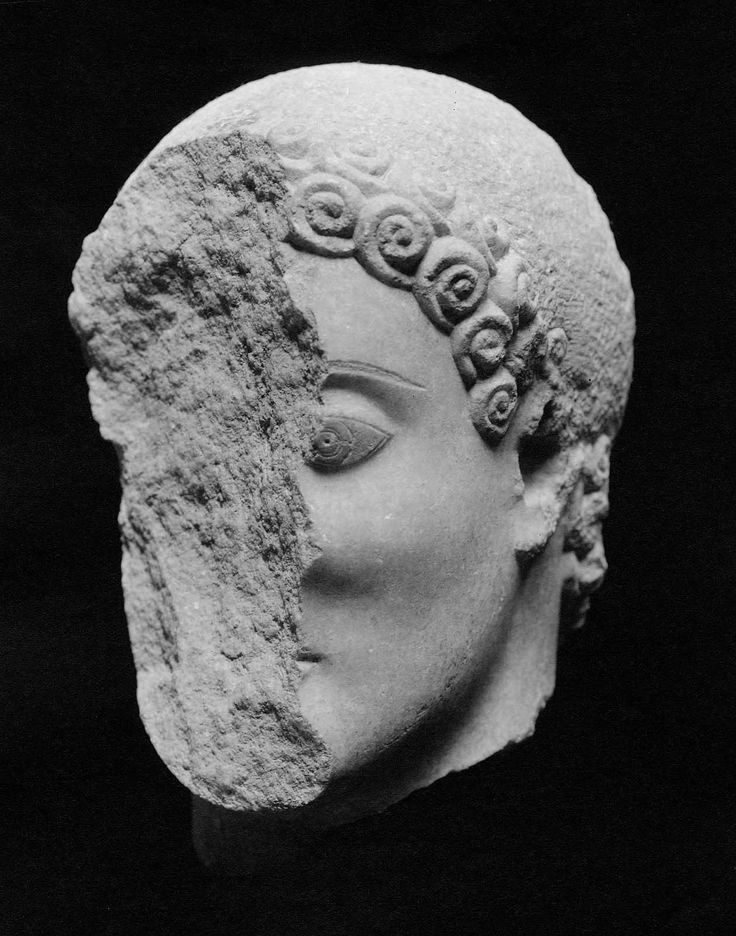
(Damaged) marble head of a kouros (youth), Greek-Archaic Period 530–515 BC Attica, Athens at MFA, Boston [1]
• • •
Missing some Tweet in this thread? You can try to
force a refresh



